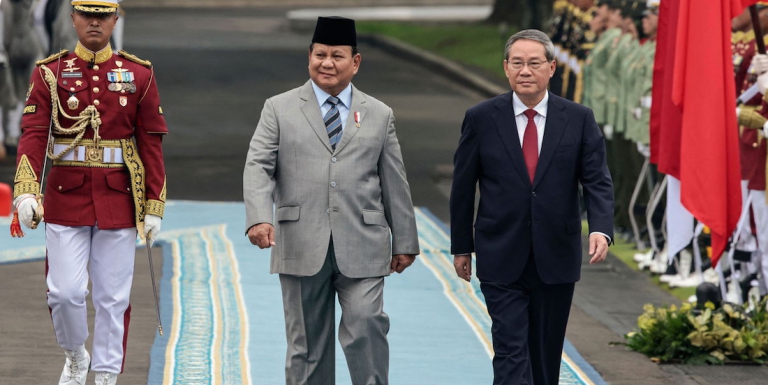
How One Father’s Rescue Mission Reflects Indonesia’s Dramatic Transformation From Anti-Chinese Violence To Beijing Partnership
New York, N.Y. – In the turbulent 1960s, when Cold War tensions reached fever pitch across Southeast Asia, Indonesia witnessed one of its darkest chapters: the systematic persecution and mass killing of tens of thousands of Chinese Indonesians.
Today, as geopolitical winds shift once again, the archipelago nation’s relationship with China has undergone a remarkable transformation that mirrors the personal journey of families torn apart by historical hatred.
The story begins in 1965, when Indonesia’s military, backed by civilian militias, launched a campaign of terror against suspected communists following an alleged coup attempt. Chinese Indonesians, many of whom had lived in the islands for generations, became primary targets due to their perceived connections to Mao Zedong‘s communist China.
The violence claimed an estimated 500,000 to one million lives, with
Chinese Indonesians comprising a significant portion of the victims.
America’s Cold War Courtship
During this period, the United States was actively courting Indonesia away from the Non-Aligned Movement and communist influence. President Sukarno‘s flirtation with Beijing had alarmed Washington, which saw Indonesia’s vast archipelago as strategically crucial for containing communism in Southeast Asia. The American government, while publicly maintaining diplomatic silence, privately supported the military’s rise to power under General Suharto.
The persecution extended far beyond physical violence. Chinese languages were banned from public use, Chinese schools were shuttered, and publications in Chinese script were prohibited. Families were forced to adopt Indonesian names, abandoning centuries-old cultural traditions. The policy aimed to erase Chinese identity entirely from Indonesian society.
The film “The Year of Living Dangerously” is based in this period. Staring Mel Gibson as Australian reporter and Sigourney Weaver as an enigmatic embassy aide.
A Father’s Mission of Rescue
Against this backdrop of systematic oppression, Chinese Indonesian children could be found in Indonesian orphanages.

One such case involved Mathew, an infant found in an orphanage in Sulawesi (formerly known as the Celebes Islands).
As his soon-to-be adoptive father, recognizing the dangerous climate for Chinese-Indonesians, I felt compelled to remove him from what I perceived then as an environment of perpetual threat.
I thought I needed to get him away from that nation so that he could be free, I thought to myself, encapsulating the desperate circumstances that drove thousands of families to seek refuge elsewhere or place their children in foreign care.
The Long Road to Reconciliation
Suharto’s New Order regime, which ruled Indonesia from 1967 to 1998, maintained anti-Chinese policies for decades.
However, the Asian Financial Crisis of 1997 and subsequent political upheaval that toppled Suharto opened new possibilities for reform.
President B.J. Habibie and his successors gradually began dismantling discriminatory laws.
A watershed moment came in 2000 when President Abdurrahman Wahid officially lifted the ban on Chinese languages and cultural practices.
I was honored to be able to meet with “Gus Dur” one-on-one in his hotel room in Washington one night. As a Muslim cleric, he amazed me with his directness and fortitude.
Under his leadership, Chinese New Year celebrations returned to public spaces, Chinese schools reopened, and publications in Chinese script resumed circulation. The healing process had begun, though scars from the violence remained deep (he also restored Indonesian relations with Israel).
Indonesia’s Pivot Toward Beijing
Today’s Indonesia presents a dramatically different picture. Under President Joko Widodo, the nation has increasingly aligned itself with China’s Belt and Road Initiative, welcoming massive infrastructure investments. The Jakarta-Bandung High-Speed Railway, built with Chinese technology and financing, symbolizes this new partnership.
Economic ties have strengthened considerably. China is now Indonesia’s largest trading partner, with bilateral trade exceeding $100 billion annually. Chinese companies have invested heavily in Indonesian nickel processing, supporting the country’s ambitions to become a major player in electric vehicle battery production.
Geopolitical Implications
This transformation reflects broader shifts in global power dynamics. As China’s economic influence grows and America’s focus turns to other regions, Indonesia has pragmatically adjusted its foreign policy. The nation’s strategic position between the Indian and Pacific oceans makes it a crucial player in regional security arrangements.
Indonesia’s evolution from a site of anti-Chinese violence to a key partner in China’s regional strategy demonstrates how dramatically international relationships can change over decades. For families like Matthew’s, this transformation offers hope for reconciliation and healing from historical wounds.
The journey from persecution to partnership illustrates that even the deepest historical grievances can be overcome through political will, economic pragmatism, and the passage of time. Indonesia’s story serves as both a cautionary tale about the dangers of ethnic scapegoating and an inspiring example of national transformation.
Indonesia: From Chinese Persecution to Diplomatic Reconciliation (June 10, 2025)
Audio Summary (75 words)
In the 1960s, Indonesia killed tens of thousands of Chinese-Indonesians amid Cold War tensions, banning Chinese languages and culture. One father rescued his adopted son Matthew from this persecution. Today, Indonesia has transformed dramatically, restoring Chinese cultural rights and forging strong economic ties with Beijing. This shift from Washington’s sphere toward China’s Belt and Road Initiative reflects changing global power dynamics and demonstrates how nations can overcome historical hatred through reconciliation and pragmatic diplomacy.